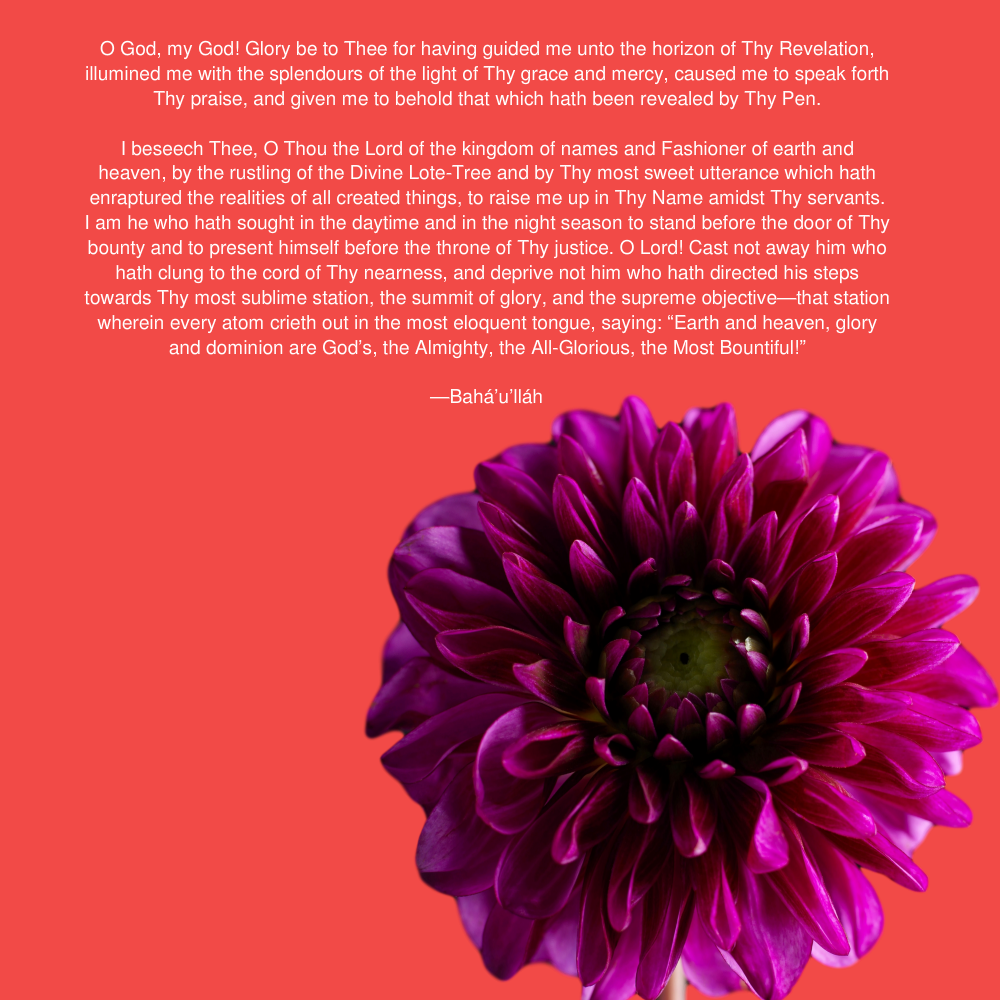As one embarks on the exploration of Bahá’í teachings, the question “Am I a Bahá’í?” ordinarily surfaces as a profound personal reflection; it invites introspection, contemplation, and an earnest examination of one’s beliefs and values. The Bahá’í Faith, with its undergirding principles of unity, harmony, and the pursuit of truth, provides a framework upon which individuals can build their understanding of spirituality and communal well-being. This article serves to delineate various facets of Bahá’í teachings, as well as to provoke thoughts on personal identification with the faith.
To commence, it is imperative to grasp the foundational tenets of the Bahá’í Faith. At its core, the teachings encompass the oneness of God, the oneness of humanity, and the oneness of religion. Bahá’ís believe that all major world religions stem from a single divine source, each offering divine guidance tailored to the needs of humanity throughout the ages. This perspective necessitates a profound respect for diverse faith traditions and a commitment to fostering interfaith dialogue. In contemplating one’s affiliation with the Bahá’í principles, one must reflect upon the importance of this global unity and its relevance to contemporary society.
The pursuit of truth is another quintessential Bahá’í ideal. This teaching emphasizes that individuals must seek knowledge without prejudice, regardless of preconceived notions. Bahá’ís are encouraged to engage with science and religion harmoniously, recognizing that both domains contribute to a more comprehensive understanding of existence. Thus, a crucial question posed to oneself is: “Am I actively pursuing truth and allowing it to inform my life decisions?” This inquiry can lead to a heightened awareness of one’s intellectual and spiritual growth.
Furthermore, the concept of service permeates Bahá’í teachings, encapsulating the essence of what it means to be a member of this faith community. Service to humanity is regarded as not merely an act of kindness, but rather as a divine obligation. This commitment extends beyond acts of charity; it encompasses engagement in social and economic development, education, and the promotion of universal peace. The call to service invites individuals to consider how their actions and efforts align with this tenet. “Am I contributing to the betterment of the world?” offers a foundational question that can guide one’s journey within the framework of Bahá’í principles.
Another salient theme in the Bahá’í Faith is the empowerment of women and the promotion of gender equality. Bahá’ís hold that the advancement of society is inexorably linked to the elevation of women’s rights. In reflecting on one’s identity as a Bahá’í, one might ponder whether they advocate for gender equality in their own lives and communities. Are they actively challenging the societal norms that perpetuate inequality? This introspection prompts critical consideration of personal values and their alignment with the aspiration of creating a more equitable world.
Loyalty to one’s country and the promotion of justice also feature prominently in the Bahá’í teachings. The Bahá’í Faith encourages active participation in civic and political life, advocating for justice and fairness in all dealings. An essential inquiry here might be: “Do I uphold the principles of justice and demonstrate loyalty to my community?” This reflection taps into the understanding that affiliation with the Bahá’í Faith entails not only spiritual beliefs but also social responsibilities.
Moreover, the notion of community plays a transformative role within the Bahá’í teachings. Community life in the Bahá’í context is characterized by unity and cooperation, transcending racial, ethnic, and cultural boundaries. In assessing one’s identification as a Bahá’í, it is worthwhile to consider the nature of one’s engagements with others. “Am I nurturing relationships grounded in empathy and understanding?” This question underscores the importance of cultivating an inclusive environment, embracing diversity as a source of enrichment rather than division.
The significance of prayer and meditation also resonates within Bahá’í teachings. These practices serve as a conduit to spiritual growth, enabling individuals to foster a deeper connection with the divine. In contemplating one’s status as a Bahá’í, one must ask: “How integral are prayer and meditation in my daily life?” This introspection invites a reevaluation of spiritual practices and their efficacy in nurturing one’s soul and aligning oneself with the tenets of the faith.
As one continues to navigate the intricate tapestry of Bahá’í teachings, the notion of personal accountability emerges. Bahá’í teachings emphasize that each person is responsible for their own spiritual growth and development. Therefore, a poignant reflection might be: “Am I taking personal responsibility for my beliefs and actions?” This inquiry can lead to a heightened sense of agency and commitment to living out Bahá’í principles in tangible ways.
In conclusion, the query “Am I a Bahá’í?” serves as a multidimensional exploration into one’s alignment with the teachings of the Bahá’í Faith. Engaging with the core principles of unity, truth, service, gender equality, justice, community, prayer, and personal accountability fosters an enriched understanding of oneself. This reflective journey is not merely an assessment of affiliation but a profound engagement with the ideals that can promote a more harmonious existence. Ultimately, it is through such deliberations that individuals may ascertain their place in the ever-evolving narrative of the Bahá’í community and the universal quest for peace and understanding.
